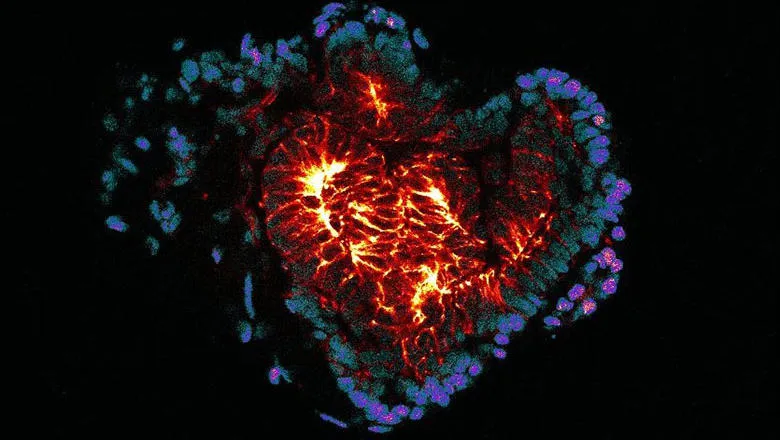The award of this grant provides a great opportunity to validate and further develop our system to generate Innate Lymphoid Cells on organoids. These are particularly rare cells, making it difficult to harvest them from human tissues for follow up studies, hence many experiments are done using animal models. By generating large numbers of human Innate Lymphoid Cells, we will provide a feasible alternative to animal research and open the possibility of using these cells for autologous cell therapies.
Dr Joana Neves, Lecturer in Mucosal Immunology
07 March 2023
Funding awarded to further develop alternative model to animal research
Human organoid model was originally developed by Neves Lab to generate mucosal immune cell populations.

New funding has been awarded to Dr Joana Neves, to further develop a human organoid model to generate mucosal immune cell populations. The funding was awarded as part of a £4.7m investment from National Centre for the Replacement Refinement and Reduction of Animals in Research (NC3Rs), Biotechnology and Biological Sciences Research Council (BBSRC), and UK Research and Innovation to support the next generation of non-animal technologies.
As part of this call, Dr Joana Neves was awarded £195,610 for her project to expand and validate a human in vitro system that promotes the generation of large number of innate lymphoid cells in mucosal organoids (lung, small intestine and colon). The project aims to demonstrate the robustness of the system so it can be used by other researchers as an alternative to animal research.
The new joint call combines BBSRC’s remit to fund tools and technologies underpinning biological research with the NC3Rs mission to pioneer better science by supporting predictive, reproducible and cost-effective alternatives to the use of animals in research.
The 24 projects supported under the call offer potential to deliver tangible impacts that improve human and animal health including ageing.

